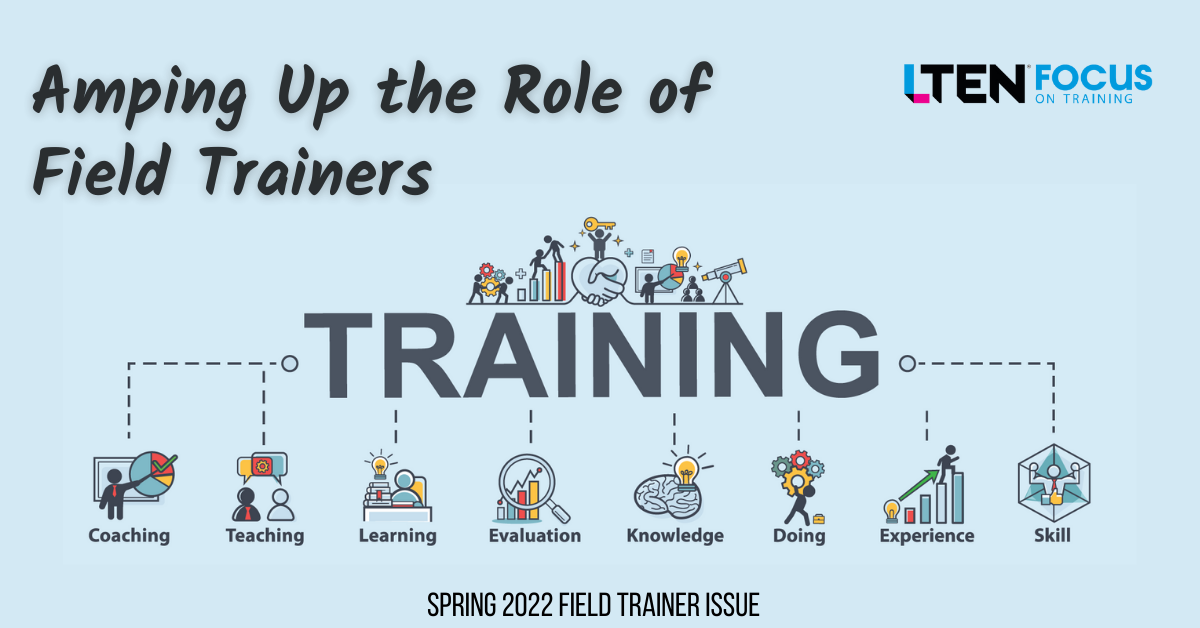
Amping Up the Role of Field Trainers
Feature Story – By Shaun McMahon
There are many ways field trainers can make the most of the position
Pharmaceutical, biotech and medical device representatives have a tough job, which is why we invest in comprehensive training programs to prepare and support them. It’s ironic that one of the most important roles in the training process — that of field trainer — is sometimes an afterthought in the sales/marketing hierarchy, with the position often taken on by salespeople who must divide their time and attention between training and sales.
However, whether you have a dedicated field trainer or full-time sales professionals taking on added field training responsibilities, there are many ways to make the most of the position.
First, review your field trainer’s mission and duties. If you don’t have a clearly defined mission that includes roles and responsibilities, work with leadership to create one. As these requirements are developed, make sure they effectively and consistently expand training department reach in the most impactful areas.
You could even approach your sales team to find out about the points in their training and daily workload where they feel the greatest need for support. Involve current and past field trainers in determining and managing core responsibilities, especially if they are juggling multiple roles.
Examples of areas that can be effectively handled by a field trainer include:
Early New-Hire Support
Typically, new hires will spend several weeks at home reviewing materials and signing paperwork. To avoid the isolating feeling of being a new hire, have your field trainers set up a regularly scheduled check-in with the new hire after the initial welcome call, which will allow for review of information while it’s top of mind.
Regular initial contact also facilitates a more supportive, open and enduring relationship between salesperson and field trainer. A strong, collegial dynamic makes the entry process more enjoyable for the new hire while also supporting a more successful sales campaign.
To maximize effectiveness, make sure the field trainer is thoroughly versed in all materials that new hires must absorb. Providing your field trainers with a leader’s guide of discussion topics following the home-study agenda will make it much easier for them to offer guidance and support and ensure consistency of expectations across all new hires.
Selling Skill Coaching
Life sciences training is complicated due to the complexity of content, which includes scientific data, product data, prescribing information and other challenging material. However, effective selling requires more than product knowledge. Be certain that your field trainers are well-versed in selling skills and able to coach those skills effectively.
Leadership, Training and Marketing Team Assistance
Your field trainers can be very effective in terms of rolling out new materials, such as clinical papers, promotional campaigns and competitive product updates. When given the right tools and support, your field trainers can deliver exceptional results. Make sure you’re getting all you can from them while also providing the support they need.
Now that you’ve determined what your field trainers can do for you, think about their required skills and personality traits, as having an objective checklist of qualities will help you and the leadership team find the most effective sales trainers and determine how to capitalize on their talents.
To give your field trainer the best shot at success:
- Train Them From the Start. Hold a train-the-trainer session immediately after a new field training team is named.
- Communicate Frequently. Field trainers are in the trenches with their peers, which gives them firsthand visibility into the needs of the sales force. As such, they are a tremendous resource. However, they are also juggling priorities and may need direction.
- Motivate Them. Make sure field trainers’ efforts are recognized by sales leadership and consider providing a stipend for taking on these additional — and very important — responsibilities. This may take the form of a blanket quarterly amount or an amount per new hire trained.
- Decrease Their Administrative Duties. It can be tempting to offload paperwork to your field trainers but think twice before dropping too much on them. Field trainers will be much more effective when they can devote their time to efforts that are essential for developing confident, competent salespeople and should thus take priority over other tasks.
Giving your field trainers the support and attention they need to succeed is a smart and effective way to improve your sales training process, while simultaneously bolstering selling success.
Shaun McMahon is president and founder of Illuminate. Email Shaun at shaunmcmahon@illuminate.net.









